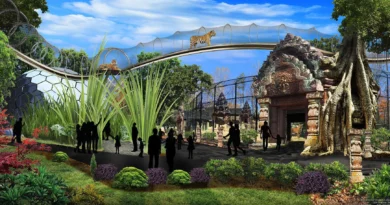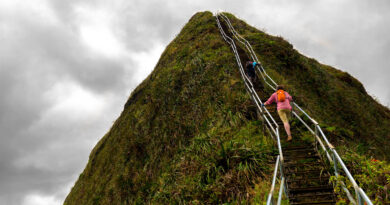20 Fun Facts About Birmingham Alabama
Birmingham, Alabama, often referred to as the “Magic City,” is a captivating blend of history, culture, and Southern charm. While known for its pivotal role in the Civil Rights Movement and industrial heritage, Birmingham also boasts a treasure trove of intriguing and unexpected facts that add to its allure. Here are 20 fun facts that shed light on the fascinating tapestry of Birmingham’s history and culture:
- Iron and Steel Capital: Birmingham earned its nickname, the “Magic City,” due to its rapid growth in the late 19th century, fueled by the iron and steel industry.
- Vulcan Statue: The city is home to the world’s largest cast iron statue, Vulcan, standing at 56 feet tall and overlooking the skyline.
- Civil Rights Landmarks: Birmingham was a focal point of the Civil Rights Movement, with landmarks like the 16th Street Baptist Church serving as a poignant reminder of the struggle for equality.
- Rickwood Field: Rickwood Field, located in Birmingham, is the oldest professional baseball park in the United States.
- Musical Legacy: Birmingham has a rich musical heritage, nurturing talents like jazz legend Sun Ra and the iconic soul group, The Temptations.
- Botanical Gardens: The Birmingham Botanical Gardens spans 67.5 acres and features over 12,000 different types of plants.
- African American History: The Birmingham Civil Rights Institute offers immersive exhibits chronicling the city’s role in the Civil Rights Movement.
- Avondale: The Avondale neighborhood is a hub of creativity and culture, known for its vibrant street art and eclectic dining scene.
- Moonshine Still: During Prohibition, Birmingham was a hotbed of moonshine production, with hidden stills scattered throughout the city.
- Foodie Destination: Birmingham’s culinary scene is thriving, with renowned chefs and eateries offering everything from Southern comfort food to global cuisine.
- Medical Milestone: Dr. Luther Leonidas Hill Jr., a Birmingham physician, performed the first open-heart surgery in the western hemisphere in 1902.
- Botched Bank Heist: In 1963, a group of robbers attempted to steal $1.5 million from the Birmingham Trust National Bank but were thwarted by police.
- Steel Industry Decline: The decline of the steel industry in the 1970s and 1980s led to economic challenges for Birmingham, but the city has since diversified its economy.
- Talladega Superspeedway: Just a short drive from Birmingham, the Talladega Superspeedway is one of NASCAR’s most iconic tracks.
- Barber Motorsports Park: Motorsports enthusiasts flock to Birmingham’s Barber Motorsports Park, home to one of the finest motorcycle museums in the world.
- Cahaba River: The Cahaba River, which flows through Birmingham, is one of the most biodiverse rivers in the United States.
- Innovation Hub: Birmingham is emerging as a hub for innovation and entrepreneurship, with startup incubators and coworking spaces proliferating across the city.
- Oak Mountain State Park: Oak Mountain State Park, located just south of Birmingham, is the largest state park in Alabama, offering hiking, biking, and fishing opportunities.
- Cultural Festivals: Birmingham hosts a variety of cultural festivals throughout the year, celebrating everything from barbecue and jazz to art and film.
- Sloss Furnaces: Sloss Furnaces, a National Historic Landmark, offers insight into Birmingham’s industrial past and serves as a venue for concerts and events.
From its industrial roots to its vibrant cultural scene, Birmingham, Alabama, continues to captivate visitors with its blend of history, innovation, and Southern hospitality.
Discover more from City Towner
Subscribe to get the latest posts sent to your email.




